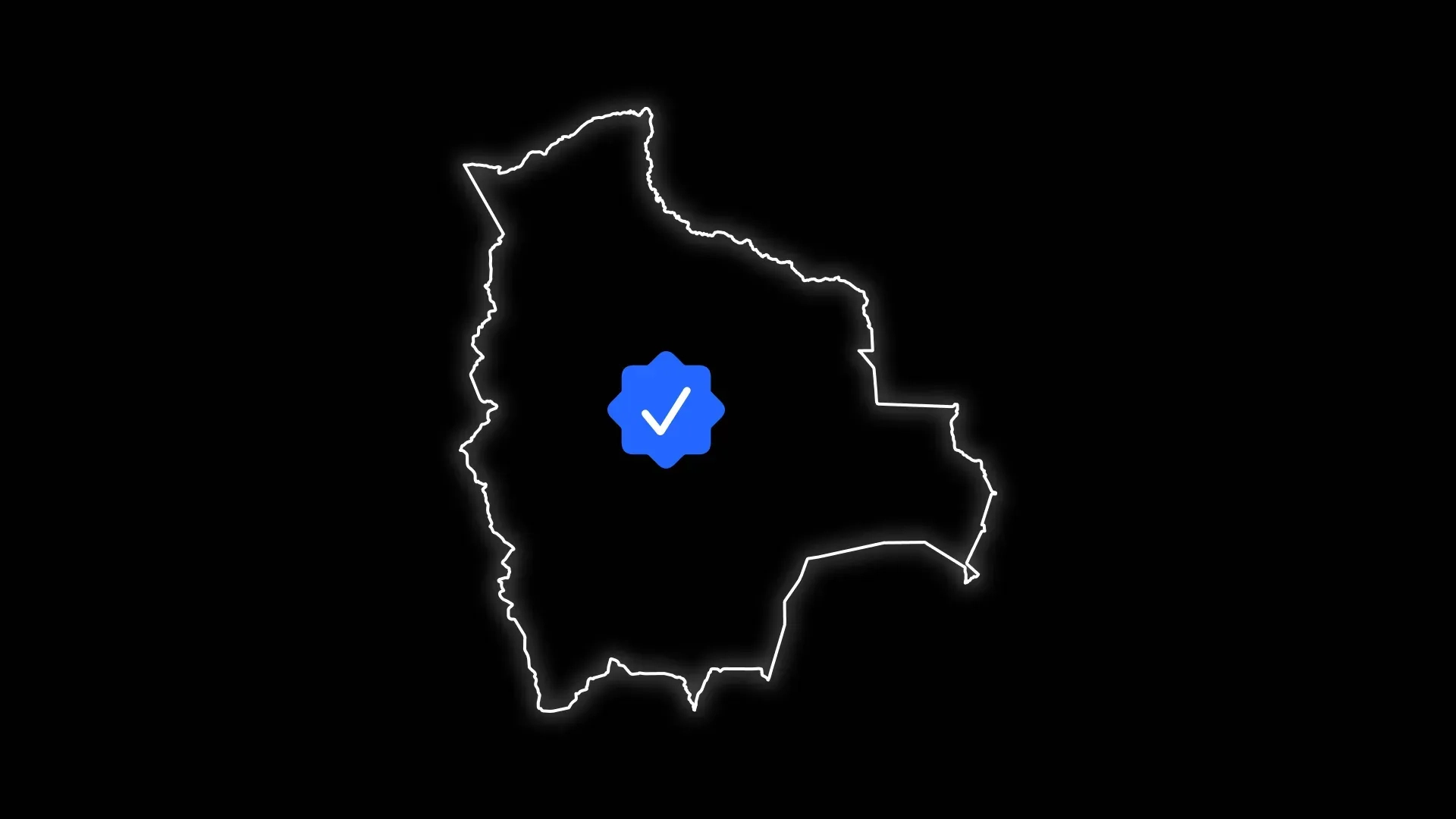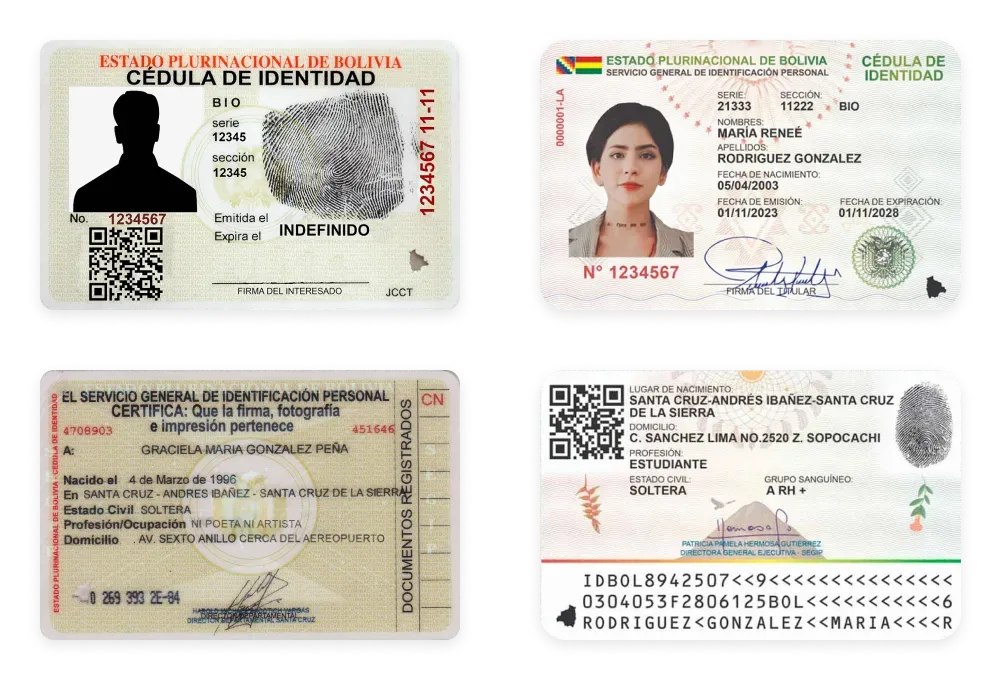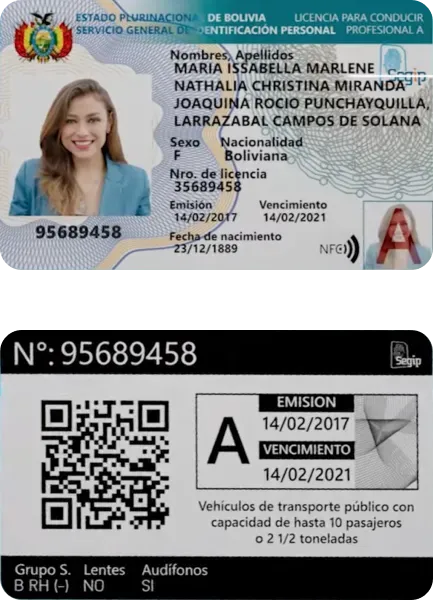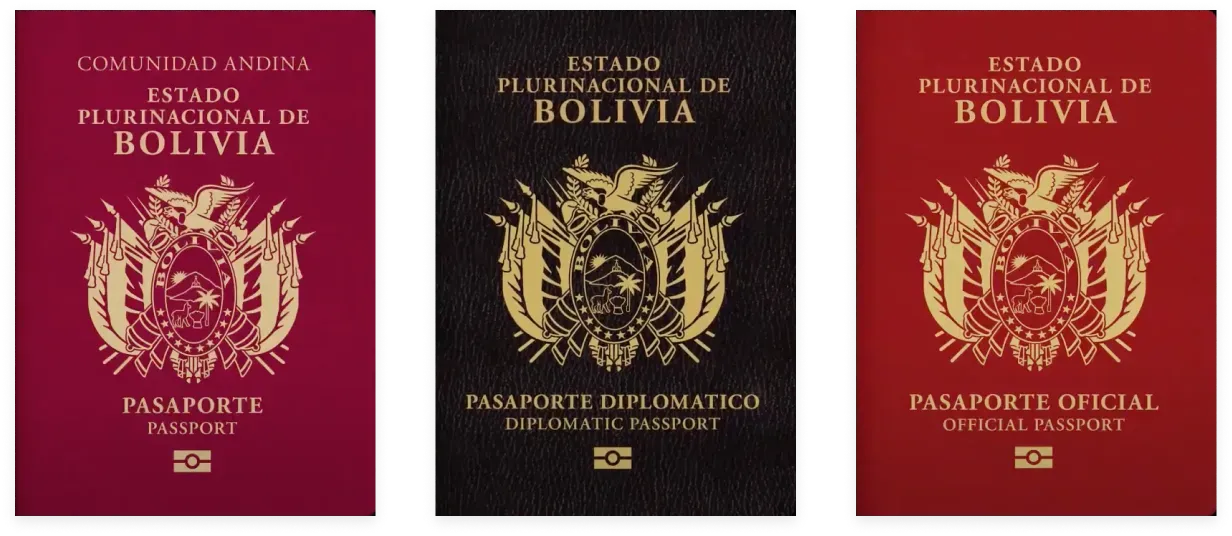
Identity Verification, KYC, and AML Compliance in Bolivia
Key Takeaways
Bolivia faces unique challenges in identity verification and KYC compliance, with a regulatory framework evolving to prevent money laundering through laws like Financial Services Law No. 393 and Supreme Decree No. 24771.
Document verification in Bolivia is complex due to the diversity of documents, including a renewed National ID in 2023, a biometric passport, and driver’s licenses with multiple security layers.
Identity verification solutions must adapt to local realities, considering factors such as the informal economy, document variability, and the country’s cultural and linguistic diversity.
Businesses can reduce operational costs by up to 90% and complete verification processes in under 30 seconds with AI-powered solutions specialized in KYC and AML compliance.
Bolivia, located at the heart of South America, faces unique challenges in implementing Know Your Customer (KYC) and Anti-Money Laundering (AML) processes. With a diverse population and a developing economy, Bolivian financial institutions and businesses must navigate a complex regulatory landscape to prevent fraud and money laundering.
Identity verification in Bolivia is crucial for regulatory compliance and financial security. Companies must balance the need for robust KYC and AML processes with the reality of a country where documentation can vary significantly. From the National ID card to the Bolivian passport, each document presents its own authentication challenges.
Bolivia’s regulatory framework has evolved to address these challenges through laws that aim to align the country with international standards for combating money laundering. However, effectively implementing these regulations requires advanced technological solutions tailored to the local context.
This article explores the current landscape of KYC and AML in Bolivia, key identity verification documents, specific challenges businesses face, and how modern solutions are transforming regulatory compliance in the country.

The Legal Framework for KYC and AML in Bolivia: Regulatory Requirements
In recent years, Bolivia has strengthened its legal framework to combat money laundering and terrorist financing. The country has implemented various laws and regulations that establish requirements for KYC and AML, aligning with recommendations from the Financial Action Task Force (FATF).
The foundation of Bolivia’s regulatory system for KYC and AML lies in Law No. 1008 on Coca Regime and Controlled Substances, which was the first law addressing money laundering. However, the legal framework has significantly evolved since then.
Financial Services Law No. 393
The Financial Services Law No. 393, enacted in 2013, sets the regulatory framework for financial institutions in Bolivia. It includes specific provisions on preventing money laundering and terrorist financing, requiring financial entities to implement KYC policies and procedures. Because identity verification systems are key to preventing money laundering activities.
Law No. 004 on Anti-Corruption, Illicit Enrichment, and Asset Investigation
Known as the Marcelo Quiroga Santa Cruz Law, Law No. 004 on Anti-Corruption, Illicit Enrichment, and Asset Investigation strengthens measures against corruption and money laundering. It establishes the obligation to report suspicious transactions and expands the scope of financial investigations.
Supreme Decree No. 24771
The Supreme Decree No. 24771 regulates Law No. 1008 and establishes the Financial Investigations Unit (UIF) as the entity responsible for receiving, analyzing, and transmitting information to prevent money laundering. It defines financial institutions’ obligations regarding KYC and AML policy implementation.
These laws and regulations have created a robust framework for KYC and AML compliance in Bolivia. Financial institutions and other obligated entities must implement customer due diligence policies, maintain updated records, report suspicious transactions, and train their staff on detecting and preventing money laundering activities.
Identity Verification in Bolivia: A Challenge for Businesses
Identity verification in Bolivia presents unique challenges for businesses. The country’s geographic and cultural diversity, along with the variety of identification documents, complicates KYC processes. Companies must deal with different formats of National ID cards, passports, and driver’s licenses, each with its own security features.
Additionally, the presence of a significant informal economy increases the risk of fraud and complicates the verification of customers’ financial information. Businesses need to implement robust systems capable of authenticating documents and verifying identities efficiently while adapting to the specificities of the Bolivian market.
Challenges in Document Verification in Bolivia
Document verification in Bolivia poses several challenges for KYC service providers. One major issue is the lack of standardization in identity document formats. Although the National ID card is the primary document, its design has changed multiple times over the decades, meaning that different versions are simultaneously in circulation.
Another challenge is the variable quality of documents. In some remote regions, documents may be in suboptimal condition due to environmental factors or wear and tear, making automated reading and verification difficult. Additionally, the presence of documents in multiple languages, including indigenous languages, adds another layer of complexity to the verification process.
Key Documents in Bolivia: National ID Card, Passport, and Driver’s License
The primary documents used for identity verification in Bolivia are:
National ID Card: A Symbol of National Identity
The new Bolivian National ID card, introduced on November 1, 2023, represents a comprehensive transformation after nearly 48 years. This document goes beyond being a simple means of identification; it is a true reflection of Bolivia’s cultural and geographic identity.
Its security features are exceptional. The photograph now has higher resolution and size, eliminating the traditional white background. The inclusion of a digitized fingerprint and signature significantly enhances security, virtually eliminating counterfeiting possibilities.
The design incorporates elements representative of Bolivia’s rich diversity. Figures such as the Patujú flower, the Kantuta flower, the Andean Condor, and the Cerro Rico de Potosí are interwoven with textile motifs from Aymara and Quechua cultures. The document includes 13 microtexts with excerpts from departmental anthems and patriotic phrases like Unity is strength in various native languages.
An innovative aspect is the option to include additional information such as blood type or ethnic affiliation, allowing for a unique level of personalization.

Bolivian Passport: International Identity Document
The Bolivian passport has been modernized to meet international security standards. It is valid for 10 years for adults and 5 years for minors, incorporating an electronic chip that stores biometric data.
Its cover features the coat of arms of the Plurinational State of Bolivia and includes pages for personal data, visas, and entry/exit stamps. The electronic chip and barcode significantly enhance security and data readability.

Driver’s License: High-Tech Electronic Document
Introduced in 2018, Bolivia’s driver’s license represents a technological leap in the region. It features five layers of security, including a patented holographic laminate with the Segip logo and an ultraviolet layer visible only under black light.
The document integrates a chip containing complete information about the owner, including driving category. On its front side, it includes a security pattern, a biometrized photo, and an additional ghost image.

Each of these documents has specific security features that KYC service providers must understand and verify properly.
Didit: Transforming Identity Verification and KYC/AML Compliance in Bolivia
Didit is revolutionizing how compliance processes are carried out in Bolivia. How? Through a service offering free, unlimited KYC forever, enabling companies to comply with local and international regulations without significant expenses. Our system adapts to Bolivia’s unique market characteristics by providing a comprehensive solution to regulatory compliance challenges:
- Document Verification: We use artificial intelligence algorithms capable of validating key Bolivian identity documents, including National ID cards, passports, and driver’s licenses. Our system detects inconsistencies and extracts information with unprecedented accuracy while adapting to Bolivia’s complex documentary reality. Learn more about how identity documents are verified on our blog.
- Facial Recognition: We implement custom AI models that go beyond simple comparisons. Our passive liveness test and advanced technology ensure that the person identifying themselves is truly who they claim to be, overcoming documentary fraud challenges specific to the Bolivian market.
- AML Screening (Optional): We perform real-time checks against global databases, including watchlists specific to Bolivia. This process allows companies to meet Bolivian legislation requirements for anti-money laundering prevention.
What Official Documentation Does Didit Verify in Bolivia?
Didit verifies the following official documents in Bolivia:
- National ID Card
- Bolivian Passport
- Driver’s License

Ultimately, for the Bolivian market, Didit means:
- Full compliance with local KYC and AML regulations: Didit solutions are fully aligned with Financial Services Law No. 393 and Supreme Decree No. 24771, ensuring companies meet Bolivian regulatory requirements comprehensively.
- Up to 90% reduction in operational costs: By automating identity verification processes, Didit eliminates costly manual reviews, enabling companies to optimize resources and improve operational efficiency.
- Verification processes completed in under 30 seconds: Our artificial intelligence technology enables instant verification, enhancing user experience and significantly reducing onboarding times for businesses and customers.
Are you ready to revolutionize identity verification in Bolivia? Our solution isn’t just a tool; it’s a technological transformation tailored to your reality.
